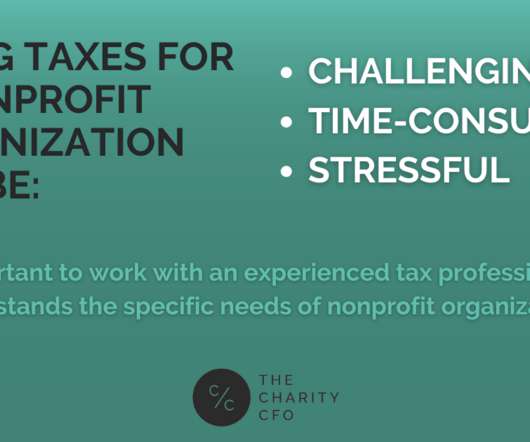Nonprofit Tax Filing: 7 Steps to Peace of Mind
The Charity CFO
JANUARY 26, 2023
Start With the Fundamentals of Nonprofit Tax Filing Non-profit organizations operate in many areas of society, including education, healthcare, sports, and social services. Proper revenue recognition is a core accounting principle that ensures proper financial reporting, ensuring that you remain compliant and maintain donor confidence.













Let's personalize your content